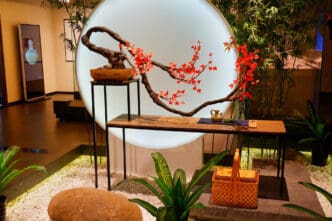Quick Takeaway
Animal & Element Origin
Impact on Personality
Diverse Interpretations
For anyone aspiring to transform their living space into a sanctuary of peace, prosperity, and personal growth, understanding and applying the ancient Chinese art of Feng Shui is paramount. This profound practice, originating thousands of years ago in China, offers a meticulously crafted system for arranging your environment to optimize the flow of `Qi`, or life force energy, thereby enhancing your well-being, relationships, and overall success right within the walls of your own home. By consciously aligning your surroundings with natural principles, you can unlock the full potential of your residence, turning it into a truly harmonious ‘dream home’ that supports and nourishes every aspect of your life.
Understanding the Essence of Feng Shui
At its core, Feng Shui, which literally translates to “wind and water,” is a philosophical system of harmonizing everyone with the surrounding environment. It posits that everything in the universe, including our homes, is imbued with `Qi`, and the quality and movement of this energy directly impact our lives. The goal is to create spaces where `Qi` flows smoothly and beneficently, avoiding stagnation or aggressive currents.
This ancient wisdom is not merely about interior design; it’s a deep understanding of how our physical spaces reflect and influence our inner worlds. By observing patterns in nature and applying principles of balance, such as Yin and Yang and the Five Elements, Feng Shui provides a blueprint for creating environments that resonate with our personal aspirations. It acts as a powerful tool for intentional living, guiding us to shape our homes into active partners in our journey toward happiness and fulfillment.
The Fundamental Pillars of Feng Shui
To effectively apply Feng Shui, one must grasp its foundational concepts: `Qi`, Yin and Yang, and the Five Elements. These interweaving principles form the bedrock upon which all Feng Shui adjustments are made, guiding the placement of objects, choice of colors, and overall spatial arrangement.
The Flow of `Qi` (Chi)
`Qi` is the invisible life force energy that animates all things. In Feng Shui, the aim is to ensure `Qi` flows gently and freely throughout your home, much like a meandering river rather than a gushing torrent or stagnant pond. Good `Qi` brings vitality, health, and good fortune, while blocked or chaotic `Qi` can lead to problems.
Decluttering is the first and most crucial step in promoting healthy `Qi` flow. Accumulated items create energetic blockages, preventing fresh energy from circulating and making room for new opportunities. Clear pathways, open spaces, and well-maintained areas are essential for inviting positive energy into your life.
Yin and Yang: The Dance of Opposites
Yin and Yang represent the complementary forces that make up all aspects of life. Yin is feminine, dark, passive, cool, and receptive, while Yang is masculine, light, active, warm, and assertive. A balanced home incorporates both, ensuring no single energy dominates excessively.
For instance, a bedroom should lean more towards Yin for rest and relaxation, with soft lighting and calming colors. A home office, conversely, might incorporate more Yang energy with brighter lights and stimulating colors to foster productivity. Achieving this balance creates harmony and supports the intended function of each space.
The Five Elements: Wood, Fire, Earth, Metal, Water
These five elements are symbolic representations of different types of energy and their interactions. Each element is associated with specific colors, shapes, materials, and even emotions, and they interact in both productive and destructive cycles. Understanding these cycles allows you to introduce or mitigate elements in different areas of your home to restore balance. For example, if an area needs more nurturing energy, you might introduce Earth elements; if it needs growth, Wood is appropriate. Harmonizing the elements ensures a dynamic and supportive energetic environment.
Applying Feng Shui to Your Dream Home: Room by Room
While the overall energy of your home is crucial, specific adjustments in each room can significantly enhance its function and your experience within it. The Bagua map, an energetic grid, can be superimposed over your home’s floor plan to identify areas corresponding to different life aspirations, such as wealth, health, or relationships.
The Entryway: The Mouth of `Qi`
Your front door is the primary portal through which `Qi` enters your home, making the entryway incredibly significant. It should be inviting, well-lit, and free of obstructions. A clear, clean path leading to a well-maintained door signals a welcoming environment for positive energy and opportunities.
Consider placing a vibrant plant or a beautiful piece of art near the entrance to uplift the energy. Ensure the doorbell works and the doormat is clean. Avoid placing mirrors directly facing the front door, as this can push incoming `Qi` straight back out, effectively repelling opportunities.
The Living Room: Heart of Connection
As a central gathering space, the living room should foster comfort, conversation, and connection. Arrange furniture to encourage interaction, avoiding placing the backs of sofas directly against the main entry to the room. A strong, solid wall behind the main seating area provides support and stability for those using the space.
Incorporate elements that represent warmth and hospitality, such as cozy throws, soft lighting, and personal touches. Balance the elements here to create a vibrant yet relaxing atmosphere suitable for both lively discussions and quiet contemplation, ensuring a harmonious energetic flow.
The Kitchen: Health and Prosperity
The kitchen is strongly linked to health, nourishment, and abundance. Keep it meticulously clean and well-organized, as a cluttered kitchen can symbolize blockages in these crucial areas of life. Ensure all appliances are in good working order, especially the stove, which represents wealth and the family’s ability to “cook up” opportunities.
Placing a bowl of fresh fruit on the counter can symbolize ongoing abundance and vitality. Avoid having the stove directly opposite the sink or refrigerator, as Fire and Water elements clash; if unavoidable, place a Wood element (like a small plant or a green mat) between them to mediate the conflicting energies.
The Bedroom: Sanctuary for Rest and Romance
Your bedroom is a personal sanctuary for rest, rejuvenation, and intimate relationships. The bed position is paramount: it should be in the “commanding position,” where you can see the door without being directly in line with it. This offers a sense of security and control over your personal space.
Minimize electronics, clutter, and work-related items in the bedroom to promote a tranquil, Yin-dominant environment conducive to deep sleep and intimacy. Opt for calming colors, soft lighting, and comfortable bedding. Avoid mirrors facing the bed, as they can disrupt sleep and symbolically invite third-party influences into a relationship.
The Bathroom: Managing Energy Drains
Bathrooms are considered areas where energy can drain away due to the plumbing, potentially impacting prosperity. To mitigate this, always keep the toilet lid down and the bathroom door closed to contain `Qi` and prevent it from escaping. Ensure the bathroom is always clean, well-ventilated, and free of leaks, as dripping water symbolizes money loss.
Adding plants, particularly those that thrive in humidity, can help absorb and transmute negative energy, creating a fresher atmosphere. A small mirror on the outside of the bathroom door can symbolically push energy back into the house, while soothing colors and pleasant scents can make it feel more like a spa and less like an energy drain.
The Home Office: Cultivating Career Success
For those working from home, the office space directly impacts career success and productivity. Position your desk in a commanding position, similar to the bed, with a solid wall behind you for support and a clear view of the door. Avoid sitting with your back to the door or a window, which can create a feeling of vulnerability.
Keep your workspace organized and free of clutter, as this promotes mental clarity and focus. Incorporate elements that support your career goals: Wood for growth and new ideas, Water for flow and communication, or Metal for focus and precision. Good lighting, comfortable seating, and inspiring artwork are also crucial for sustaining positive energy and effectiveness.
Common Feng Shui Mistakes to Avoid
Even with good intentions, certain common errors can inadvertently disrupt the flow of `Qi` and undermine your efforts to create a harmonious home. Being aware of these pitfalls can help you refine your home’s energy and prevent negative impacts.
One major mistake is excessive clutter, which suffocates `Qi` and creates stagnation, hindering opportunities and well-being. Another is ignoring broken items; anything in disrepair can symbolize neglect or blockages in that corresponding life area, so fix or discard them promptly. Also, avoid harsh, aggressive angles (like sharp corners of furniture) pointing at main seating or sleeping areas, as these can create “poison arrows” of negative energy, causing discomfort or conflict.
Beginning Your Feng Shui Journey
Embarking on a Feng Shui journey doesn’t require an immediate, drastic overhaul of your entire home. Start with small, intentional changes that resonate with you, such as decluttering your entryway, repositioning your bed, or adding a specific element to a room. The most powerful aspect of Feng Shui is the intention you bring to these adjustments, as your conscious effort amplifies their effect.
Pay attention to how your environment makes you feel. Does a certain room feel stagnant, overwhelming, or unwelcoming? Trust your intuition and make adjustments based on your personal experience. By making conscious choices to enhance the energy of your living space, you are actively participating in creating a more harmonious, supportive, and dream-worthy home that truly reflects your best self.
Ultimately, Feng Shui offers a timeless framework for creating a home that is not just aesthetically pleasing, but deeply supportive of your life’s journey. By understanding and applying its principles, you can transform your living space into a vibrant sanctuary that attracts prosperity, fosters well-being, and truly reflects your aspirations for a harmonious and fulfilling life. Your dream home is more than just walls and a roof; it’s a dynamic energetic partner in your pursuit of happiness and personal growth.








